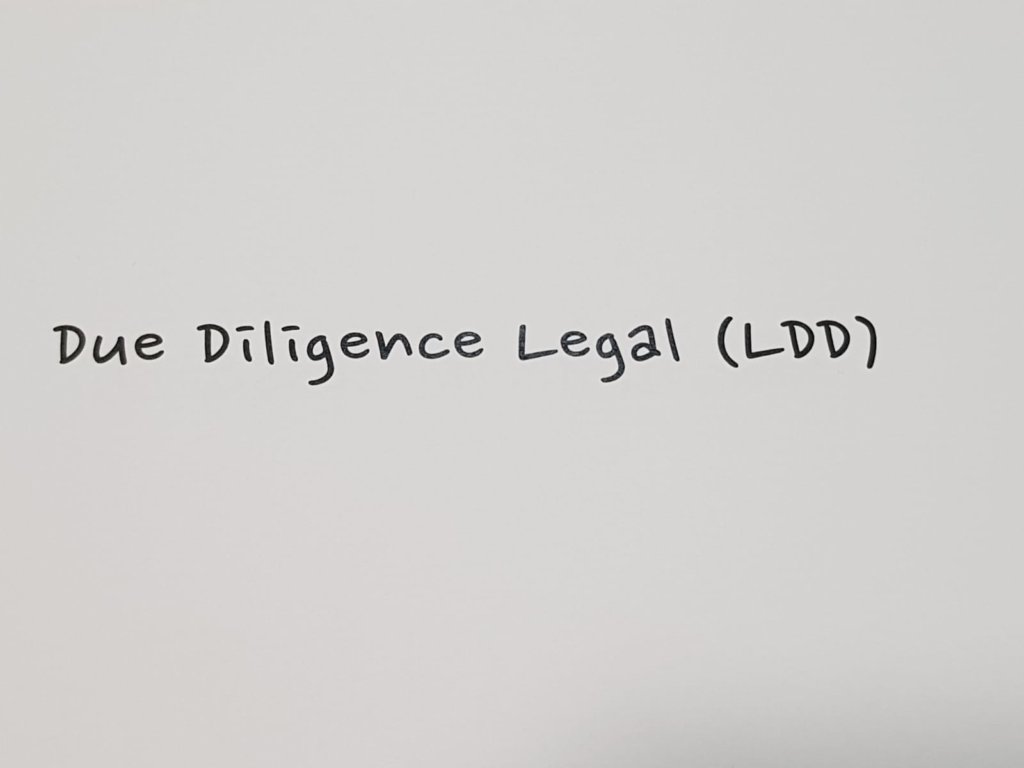
28.05.2019
Legal Due Diligence
 Por
Claramunt Julián, Leticia
Por
Claramunt Julián, Leticia What is Legal Due Diligence? (LDD)
Legal Due Diligence is the analysis of the business through the revision of documents and interviews of the employees. Normally, it is done when one wants to purchase a business or a business unit.
Unfortunately, this quiz has a limited amount of entries it can recieve and has already reached that limit.
Why does one do Legal Due Diligence?
Legal Due Diligence hopes to bring to light the hidden flaws of the company or business that someone is attempting to acquire. This means, therefore, that potential liabilities could appear that, if known, would change the terms of the transaction.
Once the company information is collected and analyzed, the transaction can (or could not) be completed. Or, the terms of the transaction (price, guarantees…) can be modified.
How is Legal Due Diligence Structured?
Legal Due Diligence is structured in subjects, or in areas of practice. Thus, we have: (1) Patents and Brands. (2) Environmental. (3) Licenses. (4) Corporate (By-laws, Articles of Association, Shareholders’ Agreements, Increases of Share Capital, Ownership of shares that are the target of the sale …). (5) Intellectual and Industrial Property. (6) Debts, quality, inventory and hidden debts. (7) Rents, conditions, and duration. (8) Supplier and Debtor Contracts. (9) Litigation (for and against). (10) Awarded guarantees. (11) Agency or distribution Agreements. (12) Agreed benefits and conditions with the workers and executives. (13) Legal status of company assets. (14) Asset Protection. And much more.
Does it make sense to hire the Legal Due Diligence of your own business?
It is not normal, but if the majority shareholder of a company is thinking about selling their company it is highly recommended to hire that LDD. The vast majority of entrepreneurs believe that their company would pass a Legal Due Diligence without any warning or contingency. Actually, after 30 years of experience, we do not know a company with a Legal Due Diligence that does not have any contingency. They all have contingencies, even the prototype of the most responsible manager that you could imagine. For those reasons, if you are going to sell your company, prepare it for the sale.
Can Legal Due Diligence influence the worth of your company?
Of course, it can. Many investors hire Legal Due Diligence with a dual purpose. On the one hand, they want to really know the business that they desire to acquire. On the other hand, they want their lawyers to detect contingencies and breaches to lower the price of the transaction. We frequently ask which of the two objectives interests the investor the most.
This shows the intelligence of the entrepreneur, by buying their own Legal Due Diligence.
Who should carry out Legal Due Diligence? Young lawyers or highly qualified lawyers?
Many (not all) big firms tend to entrust Legal Due Diligence with young lawyers or even interns. And they do it under the pretended supervision of a partner. You cannot allow any deceit. The Legal Due Diligence is very important (as we continue saying in the collaboration), and the partners frequently just revise the Executive Summary.
What landmarks constitute a Legal Due Diligence?
There are four landmarks: (1) Kick-off meeting, (2) Data Room, (3) Report and (4) Negotiation
- Kick-Off Meeting: Usually there is a first reunion in which the investors, the majority shareholders, and the advisors from both sides all meet each other. It is a preparatory reunion, but it serves as a way to start the work and to know whether the documents that they are going to examine will be placed in a Data Room or in a Virtual Data Room (VDR).
- Data Room: As we said, there are two options. Either the documentation is deposited in a physical place or the documentation is deposited in a Virtual Data Room. More and more often the VDR is being used. The VDR has one disadvantage: the cost. But it also has many advantages: an operating system that is much more flexible, as it permits the advisors from any part of the world to do their work without having to travel. Furthermore, it allows for a search (tracking) of the information that has been revised. This a priori can seem a little irrelevant. Nevertheless, in the environment of a transaction, is it very important to know if the buyer had access to the information or if they did not. And, in the second case, the will not be able to allege hidden flaws.
- Analysis and Report of Legal Due Diligence. The format of the Legal Due Diligence can almost be described as universal. In any part of the world, all of the advisors follow an almost identical scheme. From the information analyzed, two reports can be extracted. First is an executive summary that is very useful for the investors that hate losing many hours of their time in paperwork. And that is followed by an extended summary, where they break down the analyzing and the results of the analysis.
- Negotiation from the result of the Due Diligence. With the negotiation, the Due Diligence is complete. The advisors that have taken part in the writing of the Due Diligence report tend to be in charge of negotiating the results of the report.
Important Advice: It is highly recommended that the lawyers that do the LDD also do the negotiation. It is not recommended to separate the work teams at that point.
Who does the Due Diligence Report belong to? Does the investor have the right to a copy of the due diligence report?
This is a topic that tends to be controversial, although the solution is clear and unquestionable. The Due Diligence Report belongs to whoever pays for it. And whoever pays for it (normally the investor) has the right (not the obligation) to share it.
How can the contingencies derived from a Legal Due Diligence report be negotiated if they are not provided to the advisors of the seller?
Usually, the seller’s advisors get brief extracts from the Executive Summary. This way, piece by piece, they go along putting together a regimen of responsibilities and guarantees (Reps&Warranties), also known as “warranties, representations, and indemnification”, or “R&W”.
In what terms is a Legal Due Diligence report negotiated?
The result of the Legal Due Diligence report is negotiated in terms of price (cost, form of payment) and guarantees. If the purchaser needs comfort on the security of what they are acquiring, guarantees are needed. This phase is crucial and frequently difficult for both sides and the advisors. Here is the point in which both sides want to maximize the conditions of the transaction. This is really where it is explained where there will be, or will not be, a transaction.
If this article was of your interest, we recommend the following article:
Due Diligence and Concealed Flaws
And if you need a SECOND OPINION, do not hesitate to continue reading …
Contacto No te quedes con la duda, contacta con nosotros. Estaremos encantados de atenderte y ofrecerte soluciones.












